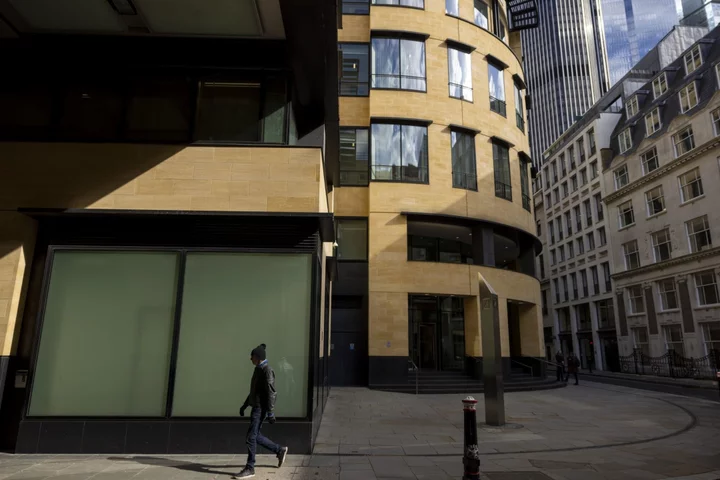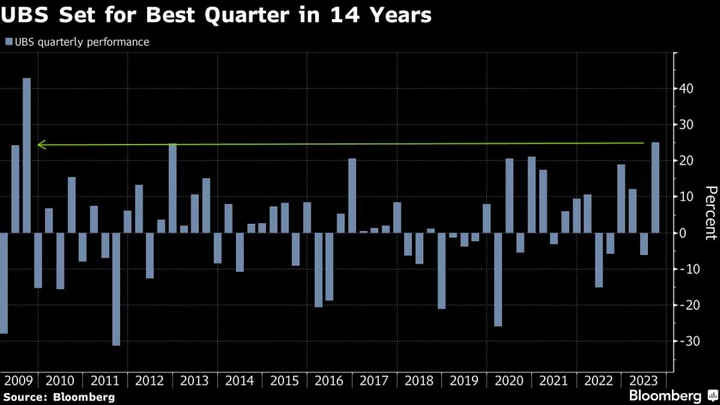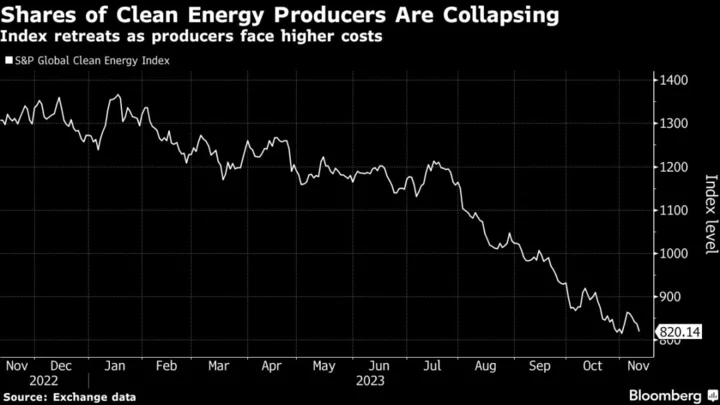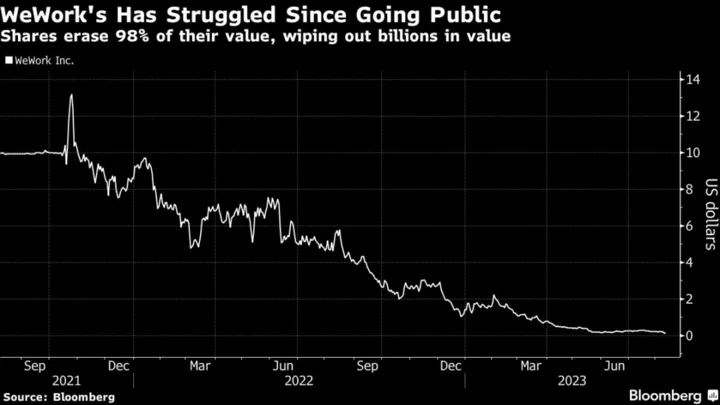Deutsche Bank AG squared off against the US parent company of Lehman Brothers in a London court this week, hoping to squeeze more money from obscure notes issued by the long-dead bank’s UK arm.
The German lender argued that it should be paid money recovered from the UK estate ahead of the company’s US parent. Deutsche Bank is leading the case as a holder of a certain type of junior security issued from Lehman’s European unit.
It’s the second trial over the ranking of those subordinated notes, after the first handed Deutsche Bank and other holders a big win at the UK Court of Appeal. While some investors discarded the Enhanced Capital Advantaged Preferred Securities (ECAPS) for nothing in the years following the US lender’s collapse, so much has been generated by the insolvency of Lehman’s UK arm that there is now a fight over the interest on the ECAPS claim.
“Maybe interest was a golden possibility that no one had thought of at the time,” Judge Robert Hildyard said while questioning the barrister representing Deutsche Bank.
Obscure Case
Even among the arcane litigation that has characterized the years of grappling over the money gathered in Lehman’s UK estate, the case is an obscure one. The vast majority of legal cases over Lehman in recent years have revolved around deciding the order in which people should be paid out. So much money has been recovered by Lehman’s UK arm that questions over the issue remain highly contentious.
“The Lehman administrations have gone on rather a long time, and we never seem to get to the end,” Hildyard said on Tuesday, the second and final day of the latest trial.
Essentially the case revolves around whether statutory interest — a form of interest added to debts paid late — accrued on ECAPS notes should rank ahead of the claim from Lehman Brothers Holdings Inc, the US parent.
Statutory interest adds up at 8% a year, so the order of seniority could boost the return for holders substantially. But the US arm wants the principal of its debt to be paid ahead of any statutory interest to ECAPS holders like Deutsche Bank.
The case matters because a large surplus is very likely to be available for subordinated creditors like ECAPS holders and the Lehman Brothers’ US parent. An estimate of the surplus produced by administrators at PriceWaterhouseCoopers in 2021 suggested that a surplus could range from £280 million ($343 million) to £500 million.
Lehman’s European arm lost a case over a long standing litigation relating to crisis-era credit default swaps last year, but a report from administrators at PwC in April said that it was likely that decision would be appealed. Success in that case could increase payouts for creditors like Deutsche Bank and LBHI.
READ MORE: Lehman Looks to Cash In on Subprime Bonds That Fueled Demise
It isn’t just Lehman’s holding company that is hoping the court would decide against Deutsche Bank. King Street Capital Management and Elliott Management Corp teamed up with Lehman’s UK arm to form a joint venture called the Wentworth Group that would share claims based on loans that Lehman’s US parent made to its European subsidiary. That means that the investment funds could benefit if the court decides that Lehman Brothers Holding Inc’s claim on its principal debt ranks higher than interest on the ECAPS claim.
A number of other issues were supposed to be decided in the trial this week, but those were settled shortly before the hearing began, leaving only one question for the court to answer. That will see subordinated lenders, like ECAPS holders, receive money from Lehman’s UK estate more quickly than they would have otherwise.
--With assistance from Jeremy Hill.
(Adds details of settlement over issues initially scheduled to come to trial in final paragraph)









